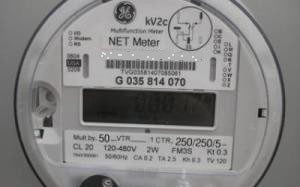Task force report leaves utilities isolated on net metering

Last month, West Virginia’s Net Metering Task Force released its final report on recommended changes to West Virginia’s net metering rules. During the last legislative session, the legislature passed a bill asking the public service commission to review net metering rules. The bill was passed at the behest of the out-of-state companies that manage our electricity. These utilities pushed this bill (HB 2201) as a way to demonstrate that net metering creates a cross-subsidization between net metered and non-net metered customers.In order to figure out what, if any, changes would need to be made to the Public Service Commission’s rules regarding net metering, the Commission created the a task force to study the issue. The report is the final product of that process; it does not do the job of proving cross-subsidization.
The task force included representatives of Ohio-based holding companies, AEP and FirstEnergy, Public Service Commission Staff, the Consumer Advocate Division (a state agency charged with representing residential ratepayers), and various solar industry and environmental organizations.
Ultimately, the PSC Staff and the Consumer Advocate Division agreed with solar and environmental advocates that the legislature intended to define cross-subsidization narrowly in reference to the direct costs in accommodating a net metering customer.
The utilities, to no one’s surprise, took a position that net metering puts an unfair burden on non-solar customers. Their solution would be for solar customers to either pay a much higher monthly fixed charge, or be compensated at the wholesale rate for the electricity their systems generate. This rate is less than half of what solar customers currently earn.
Should the PSC decide to take a more expansive definition of cross-subsidization, it would need to look at the many benefits that solar provides to the grid. Numerous studies from around the country have found that net metered solar actually provides a net benefit to all utility customers, whether or not they have solar on their own homes.
The Public Service Commission is now in the process of reviewing the task force’s findings. It will likely draft changes to the existing net metering rule. This would trigger a rule-making case that would allow for public comments and formal intervention by concerned parties.
